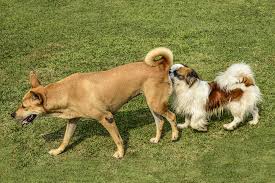
Are muzzles cruel for dogs? Can it be cruel to have a dog wear a muzzle? Yes, it can be cruel if the wrong muzzle is used—if it does not allow the dog to pant, for example. It can be cruel if it does not fit properly, if the dog isn’t acclimated to wearing it, or if a muzzle is used without addressing the underlying issues that require its use.
Should you muzzle a small dog? A muzzle is only meant to be used for short periods of time, and only when your dog is supervised. Behavioral problems like barking and chewing are, by their nature, ongoing issues, so a muzzle, a tool meant for temporary and short-term use, is not a solution.
How do you muzzle a small aggressive dog?
Do muzzles calm dogs down? Muzzles are like any other training tool in that they provide opportunities to do fun training with your dog. They can also be considered part of your emergency kit, something that may come in really handy to relax your dog and, possibly, even prevent your dog from biting in stressful situations.